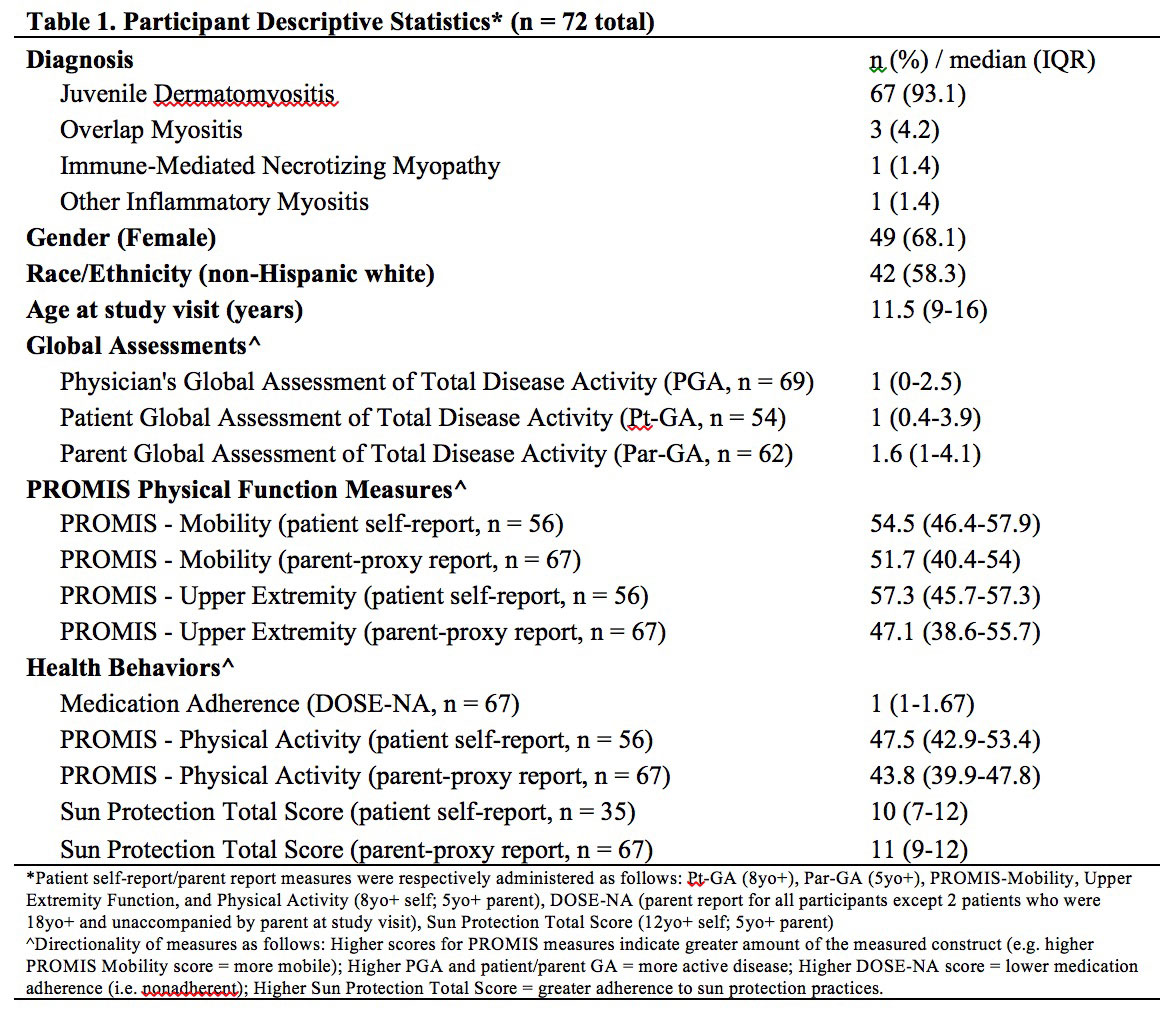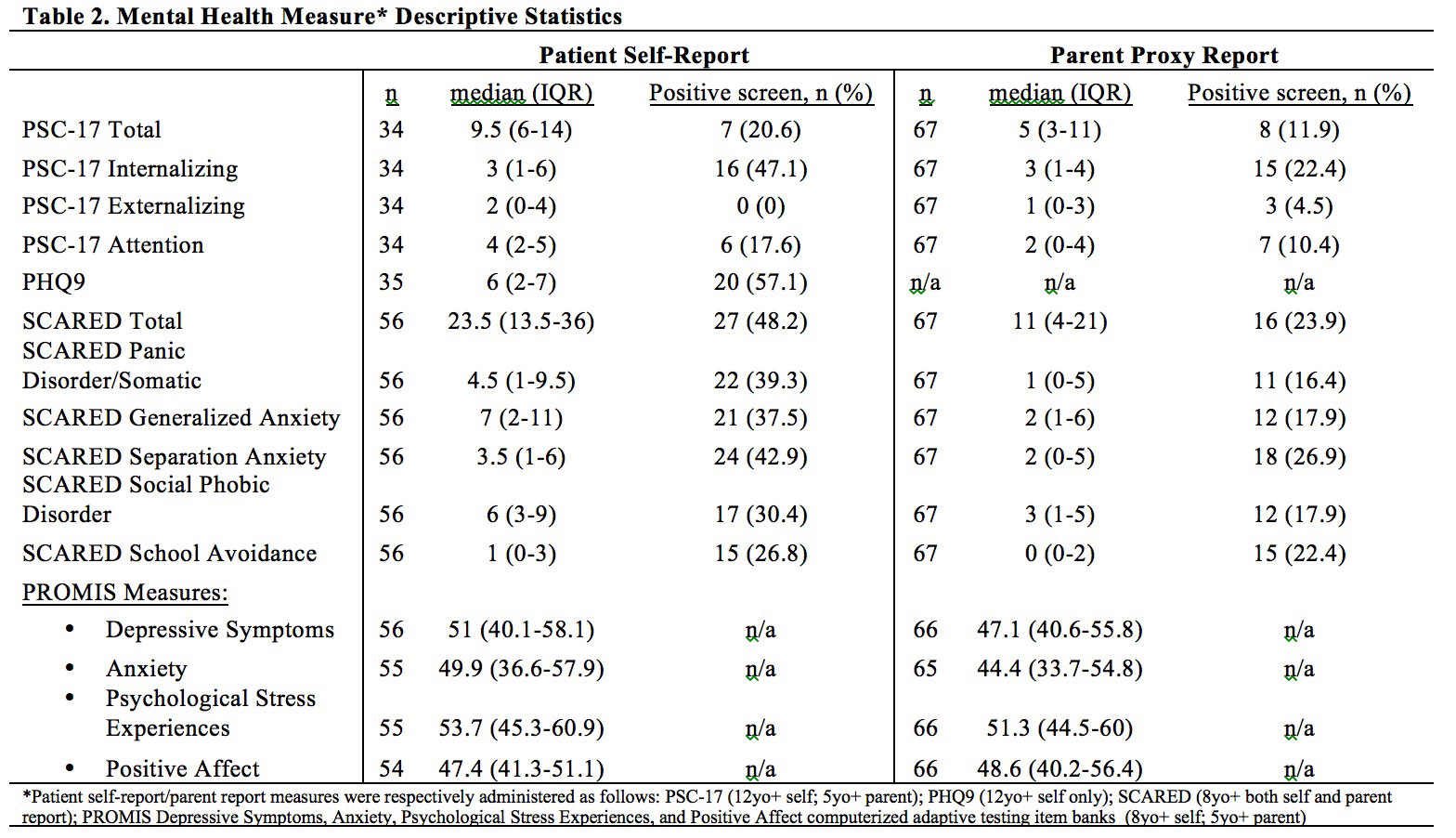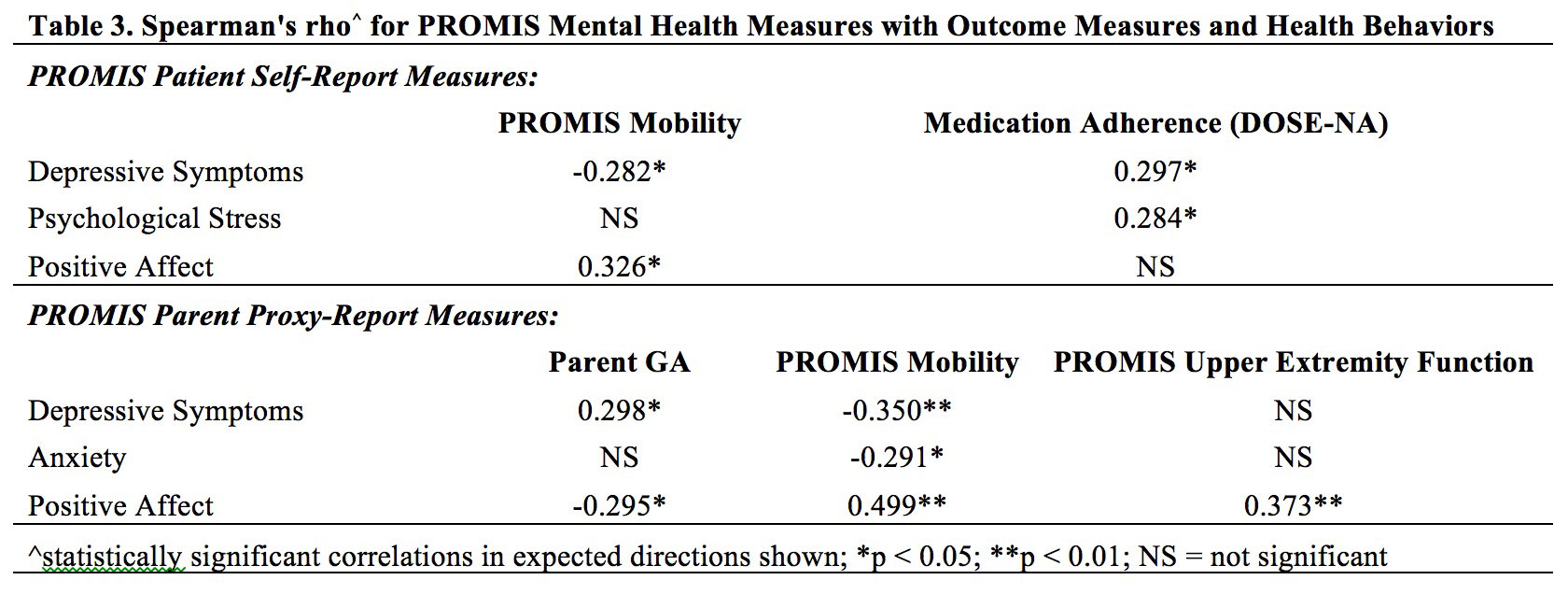Session Information
Date: Sunday, November 13, 2022
Title: Pediatric Rheumatology – Clinical Poster II: Connective Tissue Disease
Session Type: Poster Session C
Session Time: 1:00PM-3:00PM
Background/Purpose: Qualitative studies in juvenile myositis (JM) suggest high rates of emotional distress but the prevalence of mental health comorbidities is not well described. We present the first multicenter North American study assessing acceptability of mental health screening, rates of positive mental health screening results, and associations of mental health with outcomes/health behaviors in JM.
Methods: JM patients/parents (5-21 yo) were eligible. Patient/parent-proxy mental health screeners included: Pediatric Symptom Checklist-17 (PSC-17), Patient Health Questionnaire-9 (PHQ9), and Screen for Child Anxiety Related Disorders (SCARED). Positive screening was defined as any total/domain score above established cutoffs. Patients/parents completed a 3-item mental health screening acceptability survey. Patient-Reported Outcomes Measurement Information System (PROMIS) pediatric/parent-proxy Depressive Symptoms, Anxiety, Psychological Stress Experiences, and Positive Affect measures assessed emotional distress intensity. Outcomes/health behavior measures included: 1) Physician/Patient/Parent-proxy Global Assessments of Disease Activity (PGA, Pt/Par-GA); 2) PROMIS Mobility/Upper Extremity Function; 3) PROMIS Physical Activity; 4) medication adherence (Domains of Subjective Extent of Nonadherence [DOSE-NA]); 5) Measures of Sun Protection Practices. Mann-Whitney U test assessed positive vs negative screening group differences in the outcomes/health behavior measures. Spearman’s correlations for PROMIS measures of emotional distress and the outcomes/health behaviors were calculated.
Results: Data from 72 participants were analyzed. Most patients had dermatomyositis ( >90%) (Table 1). Most patients/parents respectively rated mental health screeners ‘a little/not at all’ difficult to complete (94.3%; 97%), and agreed screening should continue (94.3%; 94%) at least annually (88.6%; 95.5%). The majority screened positive on at least one mental health screening measure (n=51; 71%) (Table 2). Of patients who completed the PHQ-9, 20% scored ≥ 10, consistent with at least moderate depression symptoms. Positive screening was associated with higher PROMIS Depressive Symptoms, Anxiety, and Psychological Stress scores by patient (all p < 0.001) and parent-proxy report (p = 0.006, 0.003, 0.01 respectively) and lower patient PROMIS Positive Affect score (p = 0.025). Positive screening was not significantly associated with differences in outcomes/health behaviors. Correlational analysis showed associations between worse scores for PROMIS emotional distress measures and poorer physical function, worse medication nonadherence, and higher Par-GA score, though correlation coefficients were small in magnitude (Table 3).
Conclusion: JM patients/parents find routine mental health screening acceptable and necessary. High rates of positive screening suggest substantial psychosocial burden and worse mental health may correlate with poorer health outcomes/behaviors. Future studies should assess mental health longitudinally, evaluate mental health referral patterns, and further assess relationships to outcomes.
To cite this abstract in AMA style:
Ardalan K, Olson L, Dvergsten J, Reed A, Manning A, Maslow G, Rikhi A, Feldman B, Danguecan a, Mossad S, Flores Pereira L, Shenoi S, Haynes S, Patten J, Knight A. Mental Health Screening in Juvenile Myositis: Preliminary Analysis of a Multicenter Pilot Study [abstract]. Arthritis Rheumatol. 2022; 74 (suppl 9). https://acrabstracts.org/abstract/mental-health-screening-in-juvenile-myositis-preliminary-analysis-of-a-multicenter-pilot-study/. Accessed .« Back to ACR Convergence 2022
ACR Meeting Abstracts - https://acrabstracts.org/abstract/mental-health-screening-in-juvenile-myositis-preliminary-analysis-of-a-multicenter-pilot-study/



